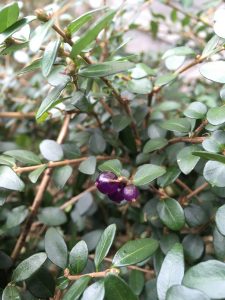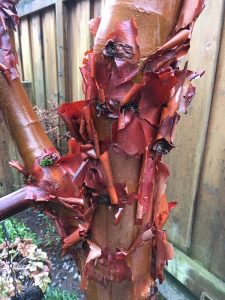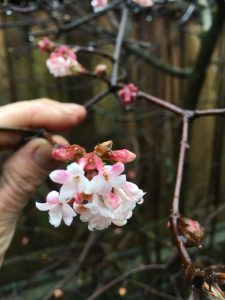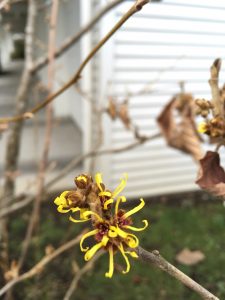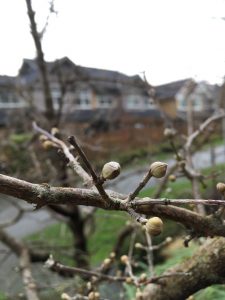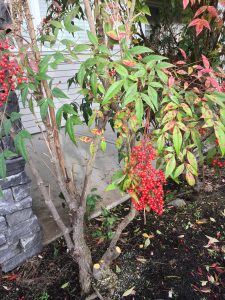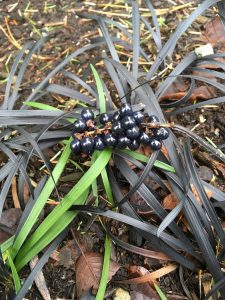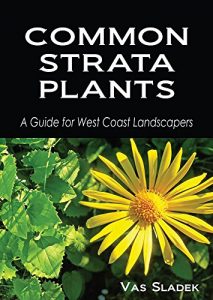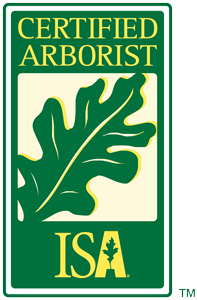January is the slow season in West Coast landscape maintenance but you can still have some fun by noticing landscape plants around you. They may not look their best but it’s great to examine them in winter. I still remember the shock of noticing the black berries on Black Mondo grass. I knew the plant but I never stopped to notice the berries. And that was just last winter, after many seasons of landscaping.
So let’s take a look at some of the plants I noticed on my strata sites.
Lonicera nitida sports nice purple berries but they can be hidden so stop and take a longer look. It’s a neat, evergreen shrub. It’s commonly sheared in tight spaces. My task was to remove ivy that was growing through it.
Acer griseum. This is one of my favourite trees because of its cinnamon coloured peeling bark. I never get tired of looking at the bark.
Viburnum bodnantense. This Viburnum is a treat in winter. The white and pink flowers are hard to miss on its bare branches.
Hamamelis mollis. Like the Viburnum above, these yellow flowers are a treat to see in winter. I normally hate spiders but the five spidery-looking petals look awesome.
Cornus mas. If you can identify this tree from the picture below you are doing really well. It’s Cornelian cherry. The edible summer cherries can be turned into jam. I usually just buy jam at Superstore. At this particular site, the residents consider the trees “messy” because people and pets step on the ripe cherries. I would never call a tree “messy”.
Nandina domestica.
It’s obviously planted for its ornamental berries (pictured above). The summer white flowers are also nice. This common landscape plant will be featured in the next blog.
Ophiopogon planiscapus.
Black plants make me laugh and I’m glad they exist. Black Mondo grass is one of them. It’s a nice clumping border plant with ornamental berries. One fun project is seeing what plant combinations work with it.
January isn’t exactly my favourite time of the year to be in the landscape but if you stop to look carefully, you can find some colour. Take pictures and identify the plants you don’t know. Then think of spring.
E-book
To help strata owners and new landscape workers with basic plant identification, I’ve put together an e-book picture guide: Common Strata Plants. The point of the guide is that the plant list comes straight from strata sites. Once you learn the plants, they will repeat over and over on your other strata sites. I’ve done the basic listing for you. You can see my e-book details here.


